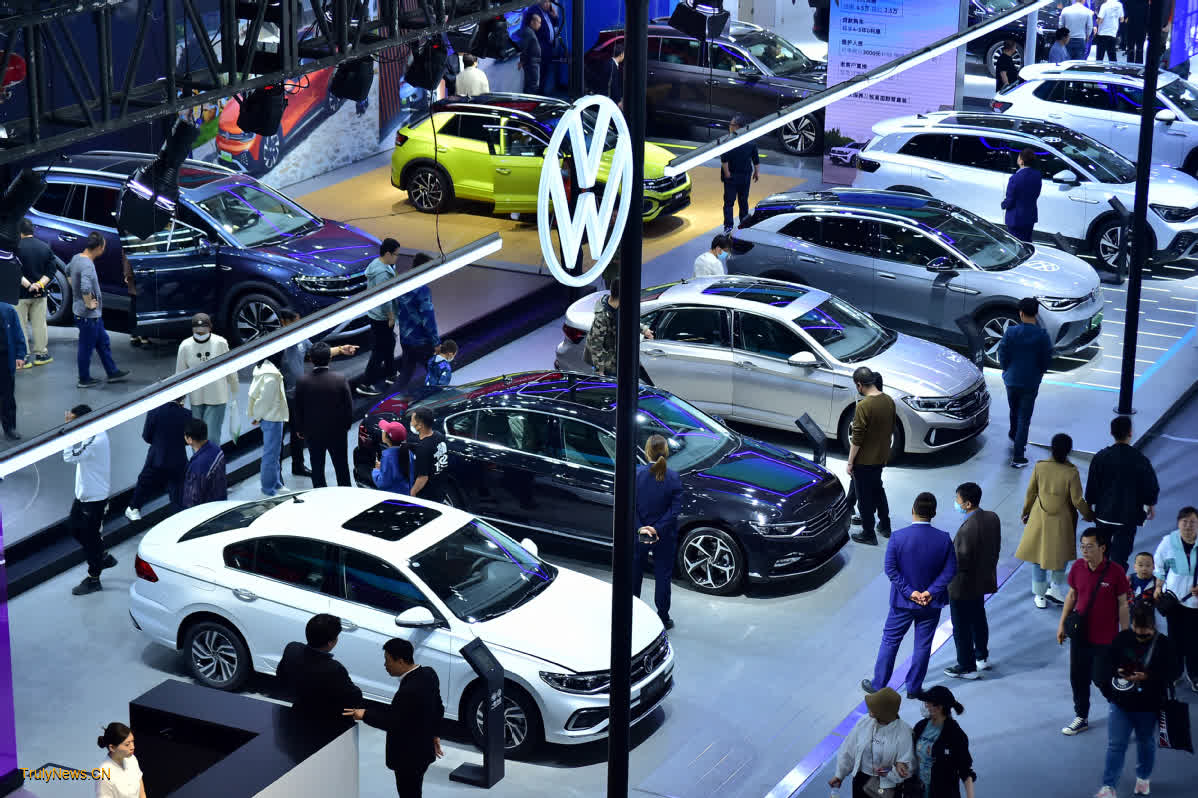
Leading companies in the automotive industry have called for free markets and cooperation at the 2024 Summer Davos amid the efforts of the European Union and the United States to curb the rise of China’s new energy vehicle industry.
Volkswagen Group is a strong advocate for free and open markets, said Ralf Brandstaetter, member of the board of management of the German car group for China, on Tuesday.
Volkswagen is celebrating its 40th anniversary in China this year, which he said “is not least due to the opening of the Chinese market”.
“Over 40 years we have clearly demonstrated: Free and fair trade and competition creates prosperity, employment and sustainable growth for all. And we will never stop,” said Brandstaetter, who is also chairman and CEO of Volkswagen Group China.
Brandstaetter said Volkswagen is firmly committed to its “in China, for China” pledge, deepening its localization efforts and fostering innovations.
“Our commitment to strengthening local partnerships is unwavering, as we strive for mutual progress and collective success,” he said.
In early June, the EU said it would impose additional duties of up to 38.1 percent on Chinese electric vehicles from early July, on top of a standard 10 percent car duty.
Its announcement followed the US’s decision in May to quadruple the 25 percent tariff on EVs made in China, and scale up the duty on Chinese lithium-ion batteries for electric cars to 25 percent from 7.5 percent.
Brandstaetter said as the world is increasingly influenced by protectionism, nationalism and growing isolation, an open and constructive dialogue is “more important today than ever”.
“The Summer Davos Forum, which I had the pleasure to attend, again showed its strength to engage government representatives, business leaders and experts from various sectors in discussions and collaborations to gain mutual understanding and foster international relations.”
The EU and China have agreed to hold talks on EV tariffs in the coming weeks.
Wan Gang, president of the China Association for Science and Technology, said that the two sides should also consider renegotiating the Comprehensive Agreement on Investment, which was reached in late 2020 to assist trade and investment between European and Chinese companies. The European Parliament voted to freeze the agreement’s ratification in May 2021.
“It is necessary for the two sides to negotiate properly to move forward together toward economic globalization. Renegotiating the CAI could be an opportunity,” said Wan at the Summer Davos.
Zeng Yuqun, founder of CATL, the world’s largest battery maker for vehicles, said countries can benefit from the rise of the NEV sector via cooperation.
Companies can build their production capacity across the world. For example, 30 percent in Africa which boasts resources, 40 percent in China which has the most advanced technology, and the rest in the US or Europe, which have big markets.
“Through such a sharing model, all countries and regions would benefit and the geopolitical tensions like the tariffs would be left behind,” said Zeng.
Across Europe, the Chinese auto industry has made investments: CATL has built plants in Germany and Hungary to serve local companies and potentially Chinese carmakers as well.
Leapmotor International, a joint venture between Stellantis and Chinese startup Leapmotor, is assembling Leapmotor-branded vehicles in a Polish plant.
Chery has acquired a plant in Spain for EV production, which the Chinese carmaker said will serve as one of its major exporting bases as well.
BYD is building a plant in Hungary, which is expected to start production in three years. BYD sold more than 242,000 vehicles outside China in 2023, surging 334 percent year-on-year. Their products have entered 19 European nations.
Also, BYD is an official partner of the European Football Championship, and has replaced German automaker Volkswagen as the event’s official vehicle supplier.
“This prestigious event will enable us to showcase our latest advancements in electric vehicles to a far-reaching audience,” said BYD.
Voyah, the premium EV marque of Dongfeng, is stepping up its pace to explore the European market as well.
It is available in countries including Spain, with Belgium and Germany to be added to its list of overseas destinations.
Voyah was the official vehicle supplier of the 2024 Summer Davos, which closed on Thursday.
“China has built a sound industrial foundation for the new energy vehicle sector. It is leading in the sector and the vehicles are increasingly winning recognition in the world,” said Voyah CEO Lu Fang at the event.
The carmaker expects to enter 60 countries by 2030, with its cumulative overseas sales reaching 500,000 units.
China exported 481,000 vehicles in May, up 23.9 percent from the same month last year. Of them, 99,000 were NEVs, according to statistics from the China Association of Automobile Manufacturers.
They brought the total number of vehicle exports from China in the first five months this year to 2.3 million units, up 31.3 percent from the same period last year.